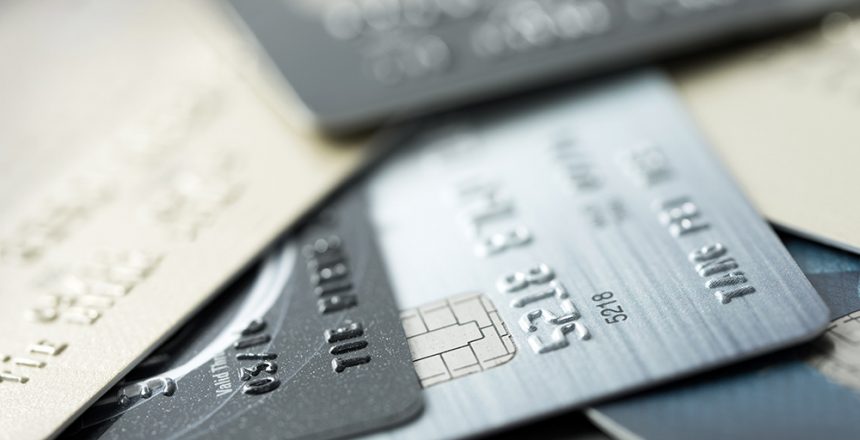With today’s perks, credit cards can help you earn free flights, hotel stays, gift cards and give you actual cash back. The average cardholder has 3.7 cards in their wallet and carries a balance of over $4,800. Racking up credit card debt can be like putting on holiday pounds; it is quick and can be fun, but it takes a lot longer to take it off than to put it on.
Below is my advice on how to make credit cards your friend:
Agree on a credit card debt philosophy. How do you plan to use credit cards? Use them for absolutely everything, or groceries and gas, or special purchases and vacations?
Some people use it for absolutely everything because they want to get the most bang for their buck. Benefits of this philosophy are maximizing volume on the credit card so you get a reward for every dollar spent, fraud protection (only liable for $50 per card if stolen), and relatively easy tracking of spending. Of course you have to be mentally prepared for a very high bill each month and know for certain that you have the cash to pay it off each month. If you start coming up short with this philosophy, time to change the plan. Racking up credit card debt is painful and shows that you are living beyond your means.
Pick two cards. Credit is individual to each person. Avoid joint cards. If one of your credit tanks, you both go down! Instead, you can open a card and add your spouse as a signer. To optimize your credit, you want to have two “seasoned” cards with at least 24 months of history. If you do not use a card regularly, it stops being reported to the credit bureaus and will not help your credit.
I recommend having a consistent everyday rewards credit card with a cash back credit card to maximize your rewards. The main difference is that the general rewards cards offer up to 2% on purchases with no limits on the amount you can earn. Cash back cards offer a higher rewards rate (sometimes up to 5-6%) in specific categories; however, cash back credit cards may impose caps on the amount you can earn rewards on in a certain timeframe.
Best Cash Back Cards. Chase Freedom®. As a cash-back card, and even a rewards credit card, the Chase Freedom® is the most popular. With rotating quarterly cash back categories, you can to take advantage of new ways to earn rewards all throughout the year — and you earn at a very high rate (5% cash back on up to $1,500 in combined purchases).
As an owner of this card, I can say Chase provides good customer service and protection. Their fraud monitoring is one of the best. Also, when you redeem rewards, look at the Chase Ultimate Rewards page for any special deals.
Citi® Double Cash Card. The Citi Double Cash card pays 1% on every purchase and an additional 1% when you pay off your card balance each month. In addition to the cash rewards, this card offers a long 0% APR offer on both balance transfers and purchases. There is also no annual fee.
Best General Rewards Cards. The Chase Sapphire Preferred® offers the most versatility and is best if you travel or eat out. This card allows you to transfer points 1:1 to participating frequent flier programs. One of the best features of this card is that points earned from Chase Sapphire Preferred® are worth 25% more when redeemed for travel on the Ultimate Rewards® website. In addition, if you have another Chase credit card like the Freedom®, you can transfer your Freedom® points to your Sapphire Preferred® and now those points are also worth 25% more when redeemed for travel.
BankAmericard Travel Rewards® Credit Card is the best no annual fee travel credit card. With this card, you earn 1.5 points per $1 spent on all purchases, with no cap. You also do not have to worry about blackout dates when booking travel. The points are used as travel credits instead on any type of travel (airfare, hotel, etc.).
Cancel and get rid of old cards. You probably have a credit card from college with a $95 annual membership fee. You might not even use the card anymore. Time to cut the cord on cards with fees, but make sure to get another card open before you cancel the old one. Creditors are more likely to give you a card if someone else has given you one. (Note: Sometimes the cards with membership fees get you free bags on flights, which can justify the annual fee since bags tend to cost $25 each).
Avoid the credit card debt trap. If you are consistently using credit cards to float your spending until the next bonus, you are living beyond your means and will need to rein in spending until you can zero out the debt. It may have been something that happened years ago that got you into this mess, or having two kids. Bottom line is that you have to deal with it and break the cycle.
Transfer as much as you can to a zero APR no transfer fee card like Chase Slate. If they low ball your credit limit, ask for more. They will give you 15-18 months at 0% to pay off the balance. Use this time to tighten your spending and get the debt paid off. If you need bonus income to support your everyday living expenses, you need to figure out how much you need to sock away from the current year bonus (instead of using the new bonus to pay off last year’s credit card debt). Put that amount in a high yield savings account, away from your everyday checking account, and set up an automatic transfer to your checking account to cover your shortfall (spending plan less paychecks).
Optimize your credit before making a big purchase. Credit bureaus like to see that creditors want to lend you money, but they also want you to only use it a little bit and always pay it off on time. If you are making a big purchase, like a home or car, keep your credit usage to less than 10% on each card. This will help you optimize your score and get the best rates.
Credit cards can provide perks and help you establish healthy credit for life’s bigger purchases and even securing employment. They also come with responsibility. By creating a plan for how to use credit, picking the right cards, and watching your spending to ensure you are living within your means, credit cards can be your friend.



